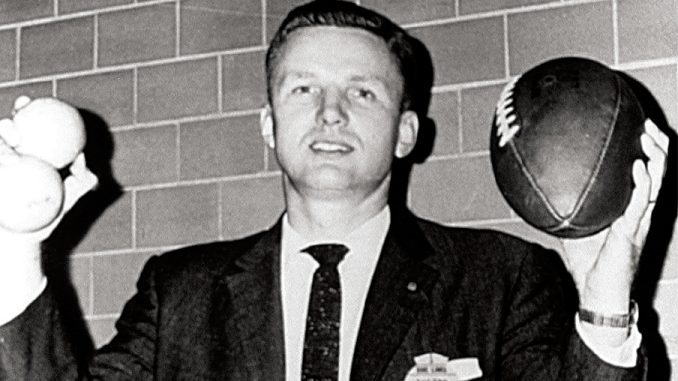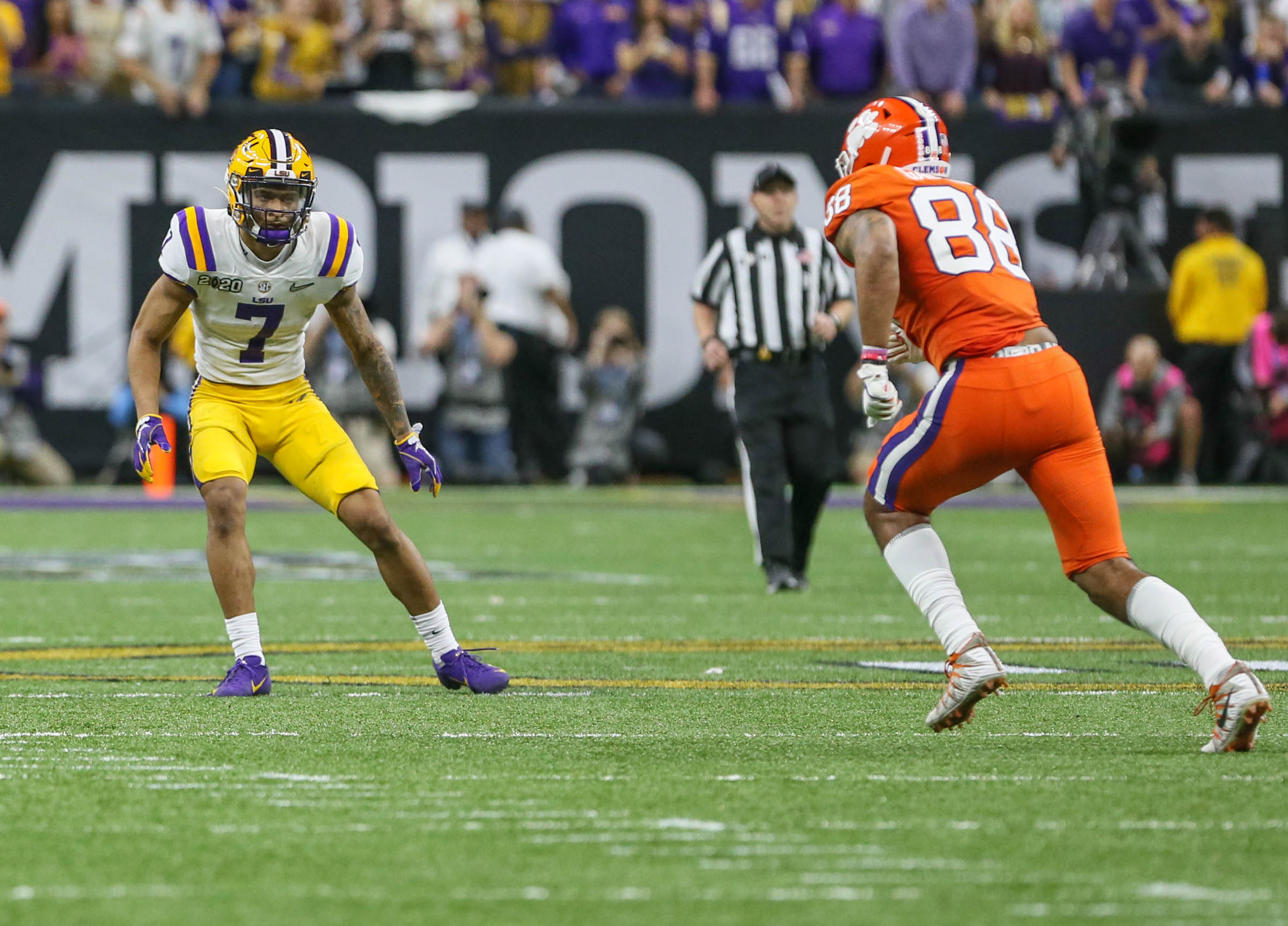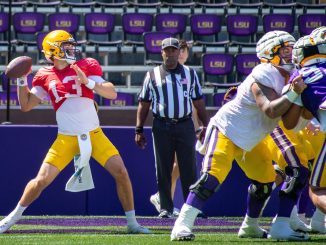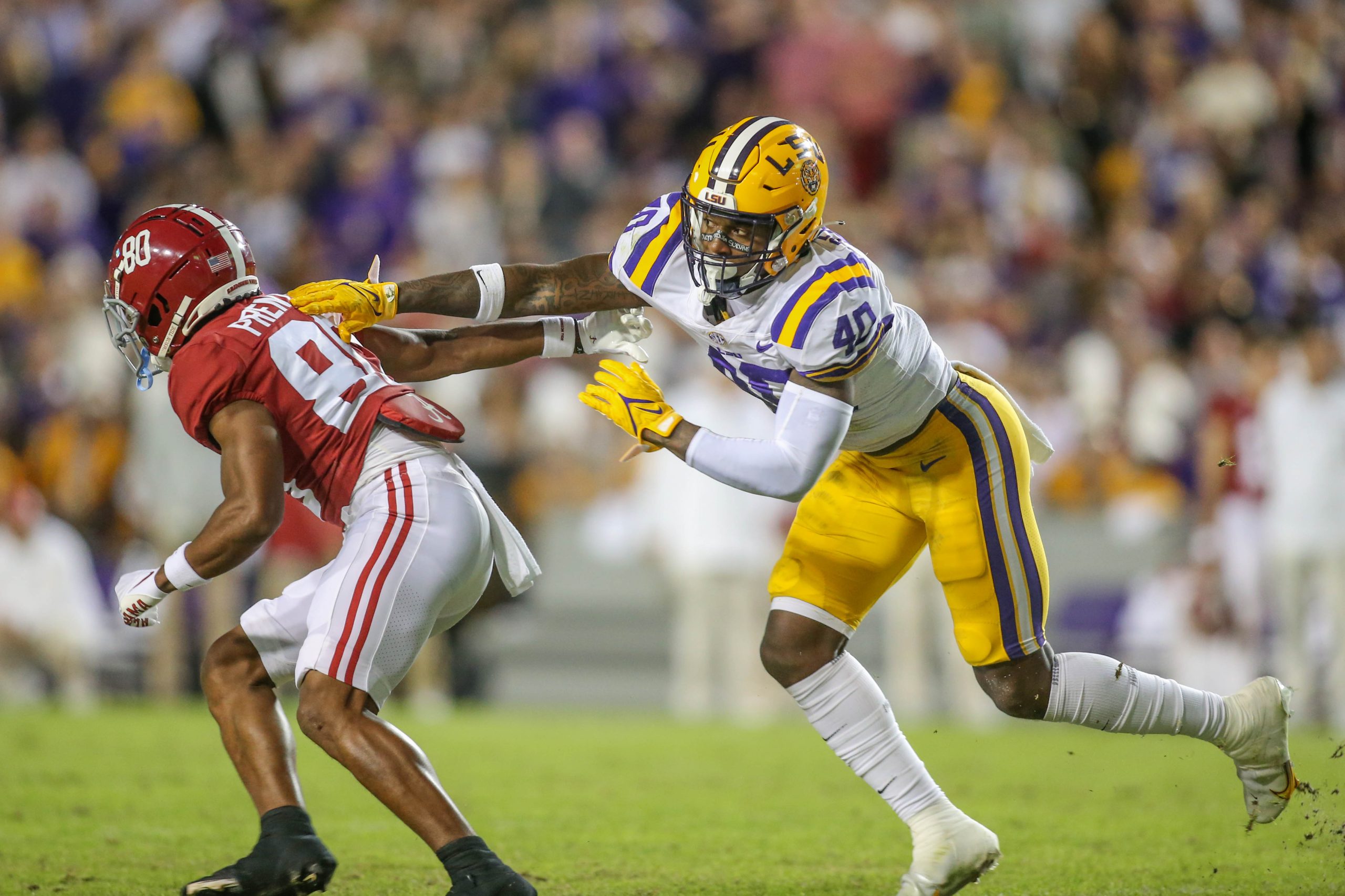
As LSU starts its 101st season of playing football games at Tiger Stadium, it is worth saluting the most charismatic coach in LSU football history who was also born in 1924.
Paul Franklin Dietzel started his remarkable life on Sept. 5, 1924, in Fremont, Ohio, a town of 15,000 on the Sandusky River, 35 miles from Toledo. Fremont was the home of President Rutherford B. Hayes, sparking a precocious Paul to develop his love for American lore.
The Centennial observance of his birth may be confined to this tribute, but this columnist was born in New Orleans in 1958 and understands the significance of Dietzel to the modern era of LSU football. In his day, Dietzel was a folk hero in Louisiana and at 6-foot-4 with a chiseled face and physique, he looked the part.
Dietzel, who was hired at 30 years old to coach the Tigers, was the last living member of his staff when he died in 2013 at 89 in Baton Rouge. He was hired for $13,000 per year. Brian Kelly receives more than $200,000 for every quarter he logs on the sidelines in 2024.
Dietzel almost led LSU to three national titles in his seven years as coach. His 1959 Tigers would have also won the Associated Press and United Press International titles, but they lost the opportunity in a 14-13 defeat at Tennessee. Photograph evidence shows Billy Cannon scored on a two-point conversion attempt, but referees ruled he did not pierce the end zone. And there was no instant replay confirmation at the time.
In 1961, Dietzel closed his coaching tour of TigerTown with a 10-1 season and No. 4 ranking. The Tigers were deprived of a national crown due to a 16-3 opening night setback to Rice.
When Dietzel bolted the bayou at 37 to become head coach at West Point, Army was a national power and had captured three national titles in the 40s. Tall Paul held reverence for the school that educated LSU President Troy Middleton, the leader Dietzel served under at the Ole War Skule. He called Middleton “the finest man I ever knew.”
An avid student of history, Dietzel said it was impossible not to heed the call to coach at the place where George Washington stationed troops in the Revolutionary War.
Dietzel had been hired at LSU from West Point. He was Earl “Red” Blaik’s offensive line coach in 1953 and 1954. Another famous member of the Army staff was Vince Lombardi.
It was terrible timing to return to the military academy on the Hudson River. The Vietnam War was exploding with cadets required to serve four years on active duty after graduation. Dietzel lasted four years before migrating to South Carolina, making his debut with the Gamecocks at Tiger Stadium on Sept. 17, 1966. LSU won 28-12 before a packed house of 67,512 fans.
After assignments as athletic director at South Carolina and Indiana, Dietzel returned to LSU as AD. His first game was against Indiana and the coach he hired at Bloomington, Lee Corso. At a prep rally before LSU’s 24-17 win over the Hoosiers in 1978, this observer witnessed a rowdy contingent of fraternity boys, chanting as Dietzel took the stage, “God is back.”
Dietzel had the unenviable task of firing Charles McClendon, his defensive strategist from 1955-61 and a man without frills who succeeded the tall, handsome icon who donned tailor-made suits he switched at halftime in the humid sweatbox of Death Valley.
The Mac departure was messy, then his successor Bo Rein perished in a plane crash on Jan. 10, 1980, 42 days after his hiring at age 34.
“We are a ship without a rudder,” Dietzel told this reporter. He discarded pleas for him to take over the program. His comment was “Coaching football is a young man’s game.” Dietzel was 55 years old at the time.
His protégé, Jerry Stovall, was installed as coach at 38, and the road was rocky. Dietzel was fired after a 3-7-1 season in 1981, and Stovall was sent away after a 4-7 campaign in 1983.
Dietzel had ignored Thomas Wolfe’s admonition that “You can’t go home again.” Just as the return to West Point in 1962 was too attractive to resist, so was Dietzel’s second stint in Baton Rouge. And both ended badly.
At first, Dietzel was greeted with champagne and roses. He was back at familiar haunts in the city where he became famous in the late ’50s with a national championship, Heisman Trophy winner Billy Cannon and a marketing phenomenon known as the Chinese Bandits.
Dietzel used the line from the comic strip Terry and the Pirates, stating the now politically incorrect pronouncement that ‘Chinese bandits are the most vicious people in the world.” Amazingly, much of his team was pictured in Sports Illustrated masked as Asian combatants.
Dietzel enrolled at Duke in 1942, but WWII interrupted his stint as a Blue Devil as a teen-aged Dietzel became the youngest bomber pilot with a plethora of B29 bombing operations in the Pacific. He was two months younger than another U.S. pilot, the late President George H.W. Bush.
At the end of his service, Dietzel returned to football and played at Miami of Ohio under the legendary Sid Gillman, considered the most gifted offensive genius of the game during his era. In Paul’s senior season, Miami of Ohio closed an undefeated season with a 13-12 win over Texas Tech in the Sun Bowl, played in El Paso on Jan. 1, 1948. Dietzel was on the field for the whole game as a center and linebacker.
The first touchdown for Miami came on a 1-yard-run from Ara Parseghian, a few years from his legendary tenure as coach of Notre Dame. Dietzel was connected to many of the greats of the profession. He was an assistant with McClendon at Kentucky in 1951 and 1952 under Bear Bryant.
When Bryant coached his first game at Alabama in 1958, the stands in one end zone collapsed at Ladd Stadium in Mobile as LSU prevailed 13-3.
Dietzel had posted a record of 11-17-2 in his first three years. He was 35-7-1 in his last four years and could have coached at LSU another 26 years to equal the age of Brian Kelly this season.
When he was hired, LSU had finished ninth in the league under Gaynell Tinsley, who was in his seventh season. Dietzel brought the program in the modern age with a flourish. Just as Nick Saban, who inherited an operation that had weathered eight losing seasons in the previous eleven, the cupboard was not full when either arrived.
This space ranks Dietzel the greatest football coach in LSU history.
Here is one man’s Top Five list.
1.Paul Dietzel – 1955-1962
Three top five finishes in seven seasons with two SEC championships and the 1958 national championship.
2. Nick Saban – 2000-2004
Two SEC crowns and the 2003 National title.
3. Charles McClendon – 1962-1979
Longest tenure and most wins in LSU history with one SEC crown and an array of accomplished graduates as ambassadors for LSU.
4. Bernie Moore – 1935-1947
Two undefeated SEC titles and also head coach of the 1933 LSU Track and Field national champions.
5. Les Miles – 2005-2016
Two SEC titles and a national championship, 80 games above .500 before it was revealed he was a recruiting cheater. Also subject of numerous sexual misconduct allegations involving him, his coaches and players.




Be the first to comment